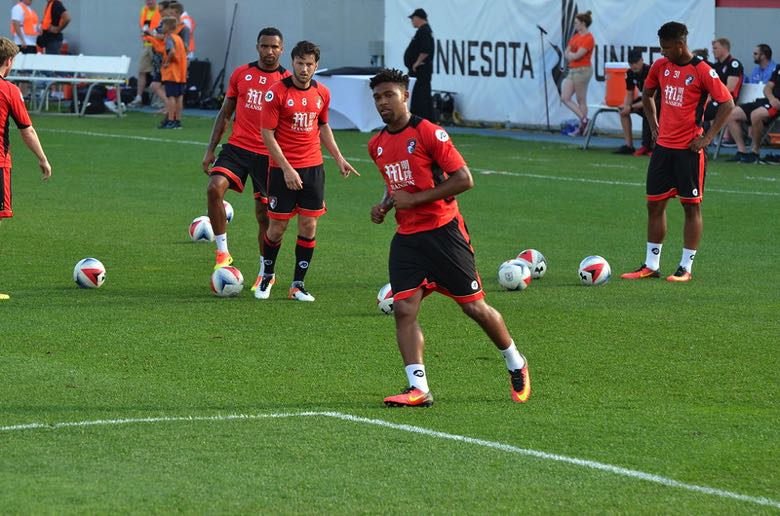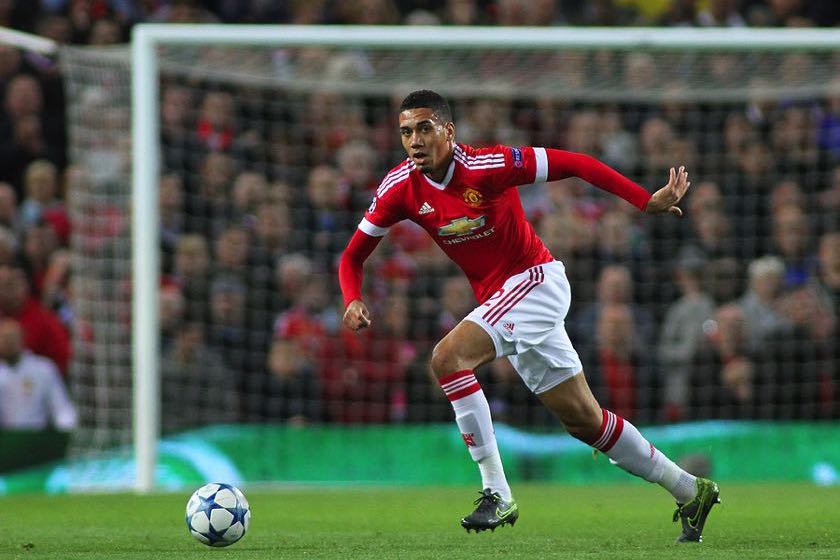When Bournemouth entertained Luton Town in a Premier League clash in March 2024, their fans were perhaps expecting victory to be on the cards. So when the Hatters romped into a 3-0 half-time lead, Cherries supporters were dumbstruck – some even took the opportunity to get up and walk out, such was their side’s annihilation. But in scenes more akin to a Hollywood-scripted film, Bournemouth came out for the second half anew – scoring three goals in the space of 14 minutes to draw level.
Now Luton were the shellshocked team, and things were about to go from bad to worse for the relegation-threatened outfit when Antoine Semenyo popped up with a late winner to send the Bournemouth fans into the unlikeliest of raptures. When quizzed afterwards, Semenyo was asked what head coach Andoni Iraola had said to the players to get them so riled up for the second half. The answer? Basically, nothing.
“He just came in and said, ‘Look we are going to have to go for it, go man for man and show some personality’, and we did that,” Semenyo revealed. Whatever it took, Bournemouth have added their name to the list of greatest Premier League comebacks. But what is the biggest deficit overturned in football? The answer will be revealed shortly….
What Is the Biggest Comeback in the Premier League?

There have been five occasions in which Premier League teams have come back from a three-goal deficit to win – in three of them, the losing side was trailing 0-3 at half-time. Bournemouth’s epic comeback against Luton is one of them, while Manchester United’s thrilling victory over Tottenham was the first in September 2001. Spurs cruised into a 3-0 half-time lead courtesy of goals from Dean Richards, Les Ferdinand and Christian Ziege.
Sir Alex Ferguson, the-then Manchester United manager, was no stranger to dishing out the ‘hairdryer treatment’ when his players were underperforming – as they were during that tawdry first-half at White Hart Lane. According to reports, Ferguson took a different tact this time, however – preferring ominous, knee-trembling silence instead. Jimmy Ryan, on the United coaching staff at the time, recalled:
Half-time comes, I go into the dressing room and I thought there were going to be plates and cups thrown about; I’d seen that before.
He comes in. The players slowly come in and sit down. There’s a pot of tea; the manager goes across to it. He gets a cup, pours himself a tea and just starts drinking it. The tension is growing, getting bigger and bigger.
He turns and walks into a little side room. He comes back a minute or two later, just drinking his tea. You’re looking at him, he’s looking at everybody and he looks like he’s boiling, but he drinks his tea, puts it down.
In the end, as the referee blew his whistle to signal for the players to head back out onto the pitch, Ryan confirms that all Ferguson said was: ‘Okay, now get it f***ing sorted.’ And sort it they did. Goals from Andy Cole and Laurent Blanc closed the deficit, before strikes from Ruud van Nistelrooy and Juan Sebastian Veron in the space of four minutes took United clear. A late David Beckham gal completed the most remarkable 5-3 victory.
Nearly two years to the day later, Wolves beat Leicester City 4-3 after trailing 0-3 at half-time. Incidentally, perhaps the best comeback in the Premier League came at St James’s Park, where Newcastle – finding themselves 0-4 down with 68 minutes played against Arsenal during the 2010/11 season – produced the most stirring of rallies, netting four times themselves, including an 87th minute equaliser, to cause pandemonium in the stands.
What Is the Best Comeback in Football History?
Winning a game from four goals down is about as good as it gets as far as footballing comebacks are concerned. Arsenal achieved that feat in a League Cup clash with Reading back in 2012 that actually ended in a remarkable 7-5 scoreline to the Gunners.
Reading were 4-0 up at half-time, so you can only imagine the team talk given by Arsène Wenger during the break. Whether ferocious or spiced with Gallic charm, it worked – Arsenal scored four times during the second period to take the tie into extra time. That manic half-hour descended into further chaos; the Gunners scoring three more times, Reading once more to cap the most remarkable 12-goal thriller.
Two-legged ties are also capable of serving up incredible drama and comebacks, and Barcelona’s 6-5 aggregate win over PSG in the Champions League in 2017 was so good it has even been given its own name – ‘La Remontada’, which literally translates from Spanish as ‘the comeback’.
The Catalan giants became the first team in European Cup/Champions League history to overturn a 0-4 first leg deficit. To make the feat all the more amazing, Barca still found themselves 3-5 down on aggregate as late as the 88th minute in the second leg at the Nou Camp, but two late Neymar goals levelled the tie and as the clock ticked down towards what would have been a PSG win via away goals, the Brazilian crossed for Sergio Roberto to prod home the 95th winner.
Even a stadium as storied as the Nou Camp had rarely heard an explosion of noise quite like it….
First leg: PSG 4-0 Barcelona
Second leg: Barcelona 6-1 PSGIt’s been five years since La Remontada 🌟 pic.twitter.com/UeWfdgfRZZ
— GOAL (@goal) March 8, 2022
All of the comebacks listed here were statistically improbable, as opposed to impossible, although that tariff of difficulty is raised yet further when you are losing AND are reduced to ten men after having a player sent off.
So one of the greatest comebacks has to be that of Yuglosavia against Slovenia at Euro 2000. The Yugoslavs, playing their final major tournament before changing their name to Serbia & Montenegro, found themselves 0-3 down after 57 minutes, before Sinisa Mihailovic got himself sent off on the hour mark.
You would think that Yugoslavia would have manned the barricades thereafter, but being reduced to ten men somehow took the pressure off them – they scored three times in the space of seven minutes, including a brace from former Aston Villa striker Savo Milosevic, to cap the most amazing 3-3 draw.

